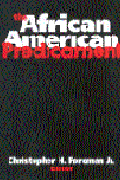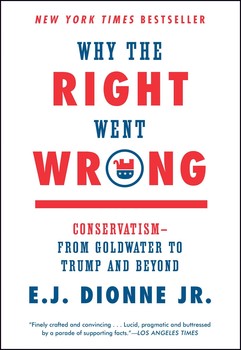As 2016 comes to a close, we offer 10 of the most popular pieces of research and commentary published at Brookings this year.
1. Another Clinton-Trump divide: High-output America vs low-output America

… our data makes plain that while cultural resentments played a huge role in this month’s election, so too did a massive economic divide between relatively prosperous high-output counties and struggling lower-out rural ones. Hashing out a serviceable politics and policy mix to serve that bifurcated reality is going to be a huge challenge.
— Mark Muro and Sifan Liu, November 29, 2016
2. A college degree is worth less if you are raised poor

If a college degree is not the great equalizer we hoped, strategies to increase social mobility by promoting post-secondary education will fall short. A more comprehensive approach may be needed.
— Brad Hershbein, February 19, 2016
3. The citizen-soldier: Moral risk and the modern military

The decision to accept my commission was the most important one I’d made in my twenty-one years of life, and I knew it. I also knew I’d likely end up in Iraq, that the next four years would be bound up with a politically and morally contentious conflict, and I was comfortable with that. But in 2005, it didn’t seem to me that my decision about whether or not to join would make me any the more or less responsible for a war that had started in 2003.
— Phil Klay, May 24, 2016
4. Covering politics in a “post-truth” America

The media scandal of 2016 isn’t so much about what reporters failed to tell the American public; it’s about what they did report on, and the fact that it didn’t seem to matter.
— Susan Glasser, December 2, 2016
5. The Emoluments Clause: Its text, meaning, and application to Donald J. Trump

Never in American history has a president-elect presented more conflict of interest questions and foreign entanglements than Donald Trump. Given the vast and global scope of Trump’s business interests, many of which remain shrouded in secrecy, we cannot predict the full gamut of legal and constitutional challenges that lie ahead. But one violation, of constitutional magnitude, will run from the instant that Mr. Trump swears he will “faithfully execute the Office of President of the United States, and will to the best of my ability, preserve, protect and defend the Constitution of the United States.” While holding office, Mr. Trump will receive—by virtue of his continued interest in the Trump Organization and his stake in hundreds of other entities—a steady stream of monetary and other benefits from foreign powers and their agents.
— Norman Eisen, Richard Painter, and Laurence Tribe, December 16, 2016
6. Teacher observations have been a waste of time and money

We have invested massively in measuring student achievement. …We have not invested anywhere near as much to understand effective teaching and to measure teacher effectiveness. We need more research to identify teaching practices that link directly to learning, rather than using notions of what effective teachers should be doing.
— Mark Dynarski, December 8, 2016
7. Foresight Africa: Top priorities for the continent in 2016

Africa is at a tipping point in 2016. Despite all the success the continent has achieved in recent years, new and old dangers – economic, political, and security-related – threaten to derail its progress. With sound policymaking, effective leadership, and enough foresight, however – can meet and defeat these challenges as well as the many more to come.
— Global Economy and Development program, January 2016
8. What is a brokered convention, and are we going to have one in 2016?

Given that the Republican party has not subjected Donald Trump to their usual intense “opposition research” we can imagine a scenario where information about Trump’s taxes or love life or business practices (or all of the above) emerges in the weeks before their Cleveland convention. In that case, some Trump delegates may decide that they really can’t put him at the head of the ticket and that the people back home will agree with them.
— Elaine Kamarck, March 12, 2016
9. Donald Trump and Africa

… there is no evidence that Africa will be a priority for President Trump in the way it has been for his three immediate predecessors. In fact, there is every reason to expect that, under a Trump administration, the U.S. will be less engaged in Africa especially where it concerns the expenditure of taxpayer resources on economic development initiatives.
— Witney Schneidman, November 10, 2016
10. Are the Russians actually behind the Panama Papers?

If the Russians are behind the Panama Papers, we know two things and both come back to Putin personally: First, it is an operation run by RFM, which means it’s run by Putin; second, it’s ultimately about blackmail. That means the real story lies in the information being concealed, not revealed. You reveal secrets in order to destroy; conceal in order to control. Putin is not a destroyer. He’s a controller.
— Clifford Gaddy, April 7, 2016
The Brookings Institution is committed to quality, independence, and impact.
We are supported by a diverse array of funders. In line with our values and policies, each Brookings publication represents the sole views of its author(s).




Commentary
The 10 most popular Brookings content pieces of 2016
December 23, 2016